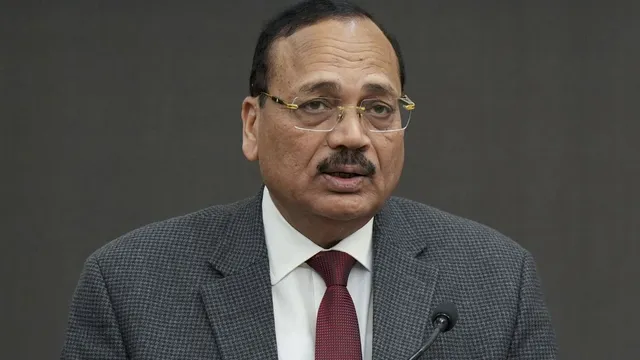- By Chetna Shree
- Mon, 24 Nov 2025 08:09 AM (IST)
- Source:JND
Following the retirement of Justice B R Gavai on Sunday, Justice Surya Kant will be sworn in today, November 24, as the 53rd Chief Justice of India, marking the beginning of his nearly 15-month tenure. Justice Kant was appointed as CJI-designate on October 30. His tenure as Chief Justice of India will conclude on November 9, 2027, upon turning 65.
Who Is Justice Surya Kant?
Born on February 10, 1962, into a middle-class family in Hisar district, Haryana, Justice Surya Kant began his career as a small-town practitioner at the Bar. He completed his Master’s degree in law from Kurukshetra University in 2011, where he secured "first class first."
Justice Kant served as the Chief Justice of the Himachal Pradesh High Court from October 5, 2018. Before that, he had authored several notable judgments at the Punjab and Haryana High Court, news agency PTI reported.
Landmark Rulings
During his tenure on the Supreme Court, Justice Kant has been a part of several landmark constitutional rulings. These landmark rulings include those on the abrogation of Article 370, the revision of Bihar’s electoral rolls, and the Pegasus spyware case.
ALSO READ: Weather Update: IMD Issues Rain Alert For Tamil Nadu, Kerala; Temperature To Drop In UP, Punjab;
- Justice Surya Kant was a member of the Bench that recently heard the significant presidential reference examining the extent of the Governor’s and President’s powers in dealing with bills passed by a state legislature. The verdict is highly anticipated, as its ruling is expected to have major implications across multiple states.
- While hearing challenges to the Election Commission's (EC) decision to conduct a Special Intensive Revision (SIR) of Bihar’s voter list, Justice Kant’s bench urged the poll body to furnish details of the 65 lakh voters omitted from the state’s draft electoral rolls.
- Justice Kant was a part of the seven-bench judges who overturned the 1967 Aligarh Muslim University decision, initiating the process for reviewing the institution's minority status.
- In the Pegasus spyware case, he was part of the bench that constituted a committee of cyber experts to investigate the allegations of illegal surveillance, Jagran.com reported.
(With PTI Inputs)

